-
Posts
80 -
Joined
-
Last visited
Content Type
Profiles
Forums
Events
Articles
Marionette
Store
Posts posted by Scott Lebsack
-
-
-
If the scripts don't work...
You could create a worksheet with the data necessary (match a surveyor's point file) export the data to excel and use a formula in excel to multiply your values, then re-import (Landmark>Survey Input>Import Survey File...)?
I'm sorry this is only the basics of a workflow, but it might be somewhere to start?
Alternately you can use the Modify>move>Move 3D to move stakes with the same value a given amount. You would need to isolate them in vertical bands for selection to make this work and it could be tedious, but it's something?
-
@Vito89 I asked a few folks. This is a know bug that was identified during our development process. Our Engineers have submitted a fix for Update 1, currently scheduled for release in October.
-
 1
1
-
-
@reGenerate Design @Katarina Ollikainen and other users may have more insights about the plant database, there are many that use it extensively. My understanding is that Vectorworks will be moving away from the FileMaker Database, as it is no longer supported in the manner it was implemented. As a practicing Landscape Architect, my needs were likely different from yours, but I used Plant styles to hold my data. With Plant Styles it was easy to duplicate and tweak plants precisely for a project. I would then store all my Plant Styles in a single file where I could access them to add to new projects.
In addition to the Plant Styles, you can create custom worksheets to pull data from plants in a file and layout the data in a spreadsheet like format. One additional resource you may look at is adding custom records for data that doesn't have a "place" in the Plant Styles. You can pull this same record data into your custom worksheets alongside the data stored in the Plant Styles. Custom record formats are fairly easy to work with and should provide a lot of flexibility for adding data to plant styles.
I hope this is helpful? Have a good afternoon.
-
-
@shorter does the split tool not accomplish what you're after, or do you have an idea to change it in some way?
-
@Tom Klaber it requires some math ahead of time, but edit>duplicate along path might get you most of the way there? Select a path and select a symbol or other object you want to duplicate along the path invoke the command...
-
I don't know about any of the rest of it, but you can get a list of symbols in your file through Tools>Utilities>List Symbols...
-
@Amanda McDermott I answered on the other thread, but Hardscapes always have a 2D and 3D(if selected) representation, they should not be auto hybrids?
-
 1
1
-
-
@Amanda McDermott unless I'm missing something, using the Hardscape Tool (or creating Hardscapes from shapes) should not require a hybrid object? Hardscapes automatically have a 2D and a 3D representation. If you're doing simple extrudes or some other form of 3D for your "Hardscapes" this will not be the case...
-
 1
1
-
-
@Beth H I would strongly recommend data tags. They are a game changer, they will require a little bit of getting used to, but I've never heard of anybody going back to plant tags after they know about, and how to use data tags. Here's a quick video from when they were first introduced. Good Luck
-
 2
2
-
-
@Mike Lamb approach is good, if you're looking for something that needs a little more precision for construction, similar to image two.
If you're using the site model, I would look at using Nurbs curves on the "Site-DTM-Modifier" class to define the top edges of the track, bottom of the track, where it ties back to grade is your grade limits. You could also add an occasional nurbs perpendicular to the track on the same layer to provide variation - dips and rises between your two top track edges. This would result in a grading plan you could hand off for construction.
-
 2
2
-
-
@line-weight Brilliant observation, I long considered this an issue, but hadn't applied the "style" metaphor, but this absolutely makes sense. I was always hung up on wanting to set a style without locking down the alignment, or creating too many with each alignment covered. I'd thought about InDesign font familes, but it all seemed too complex, your approach is quite elegant.
-
@BJRobinson to be more precise, I wouldn't invest any time in the built-in catalog or database. Plant styles are easy to use (and reuse) resources, that are able to contain a complete list of data for your plants. Once you have the data in the Plant Style for each plant, catalog data becomes redundant - as long as your plant style resources are easy to find and reuse. The data contained in Plant Styles is also available to worksheets in Vectorworks without additional work.
-
 2
2
-
 1
1
-
-
-
There is no reason to create a catalog, you already have plants styles with the data you want, I would place the file within your workgroup folder so it is easily available to pull from and export to, if you add or change anything.
-
 1
1
-
-
The use of landscape areas for "hardscapes" is something I picked up from our Marketing and training folks. The Landscape Area tool has some features that would be helpful for hardscapes, it is able to "excavate" a surface model to provide a more accurate cut/fill volume, my understanding is that this is necessary for BIM workflows. It also allows a user to grade the site model directly to finish grades, and have the "hardscapes" match the grades, rather than trying to grade the site model and hardscape separately and keep them consistent as a design evolves, or use hardscapes to grade a site model. It's nice to have hardscapes separate from the grading of the site model.
In general I try to keep items by style if they effect material takeoffs - volumes/thickness/types anything annotative can by by instance. That way if I change the physical characteristics of my style everything updates. I do the same with plants, if it should be a different line in the schedule it should be a different style. I haven't completed any production work in the past 8 mo., but while I was in a design office I was convinced attributes by class was the only way to work - in content development with Vectorworks, we never use class attributes, I would have to go back to production to try it by instance to know...
-
 4
4
-
-
@Jeremy Best The program is unable to create/calculate a "Looped Main" (US term) at this point. This also effects pressure loss calculations which are reduced in a looped main install. Our current workflow to approximate a looped main as closely as possible, is to create a closed polygon. at the midway point (opposite the point of connection), remove a very small section of that edge so that your user has a small opening opposite of the point of connection. Once this is done, they can right-click select Create Object from Shape>Irrigation Pipe from object, then connect the other network elements to this mainline. I think that is as much help as I'm able to offer now.
-
 1
1
-
-
The "Origin" is tough, and something I still have problems with on occasion, but when a file begins behaving oddly, that is one of the first items to check. I'm sure there a folks on this forum who have a better grasp of the subject, but here's a good resource to get started.
-
 1
1
-
-
Good suggestions, If possible, it would be great to have it not block the rest of the program, so you can view or copy text from the file or resource manager to match/confirm naming as well.
-
@Pat Stanford Thanks for the detailed response.
-
Quick guess - you need to edit your titleblock style and duplicate a text field in the symbol and link it to the custom field you just created in the manger?
-
 2
2
-
-
The problem with the file I worked with was that the stakes used to create it were very far from the origin, and that the site model was located near the origin. To change it, I use the recreate from source data edit option, grouped your stakes and set the center of the group at 0,0 this relocated the origin of the site model source data close to the origin, I then deleted the crop and regenerated the site model and adjusted it's final location to match the original. There are a few things you can do regarding the origin. You can use GIS to set/get the origin, or the origin tool, if the project you are working on is not referenced in some other system. @Tony Kostreski is better with GIS, you may be able to find a webinar from him that explains this well?
-
I believe your site model is causing the problem, and probably a lot of others in your file. it seemed really slow working on it previously? All your drawing elements appear to be located near the origin, but notice the coordinates of your site model insertion point (image). If I delete the site model everything seems fine. So, I edited your site model data and moved the points creating your site model closer to the origin, then deleted the crop, and moved the site model insertion point to 0,0, this got it close to the original site model location. I drew a couple of lines before making changes that allowed me to line it up with the original location (before changing the site model data). Once that was done. I made sure to assign all the texture beds to the site model (image) and updated. That resulted in the landscape areas behaving as expected. I think this all comes down to working too far from the origin, as so many things do, even if you weren't aware. I think this will fix many issues you may have been having difficulty with
Also, I would set all your landscape styles by style (little arrow) instead of by instance (two horizontal slider icon) unless you have some very specific reason not to, name being the exception.
I've attached the file if you want to copy the site model out of it, and see the changes I made to the landscape area.
-
 2
2
-




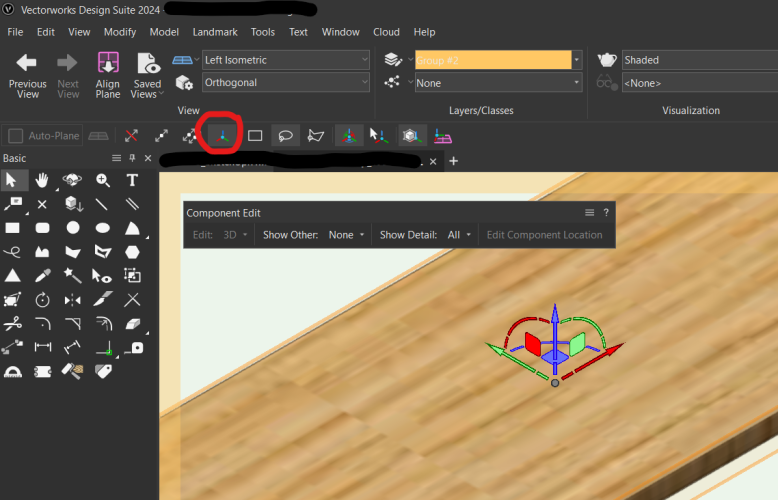
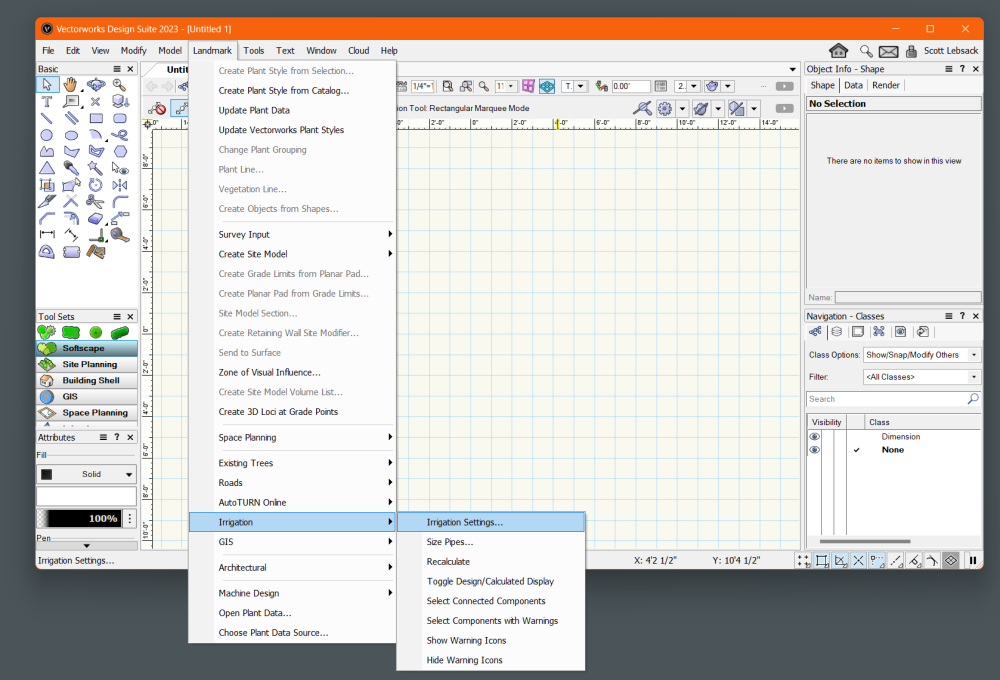
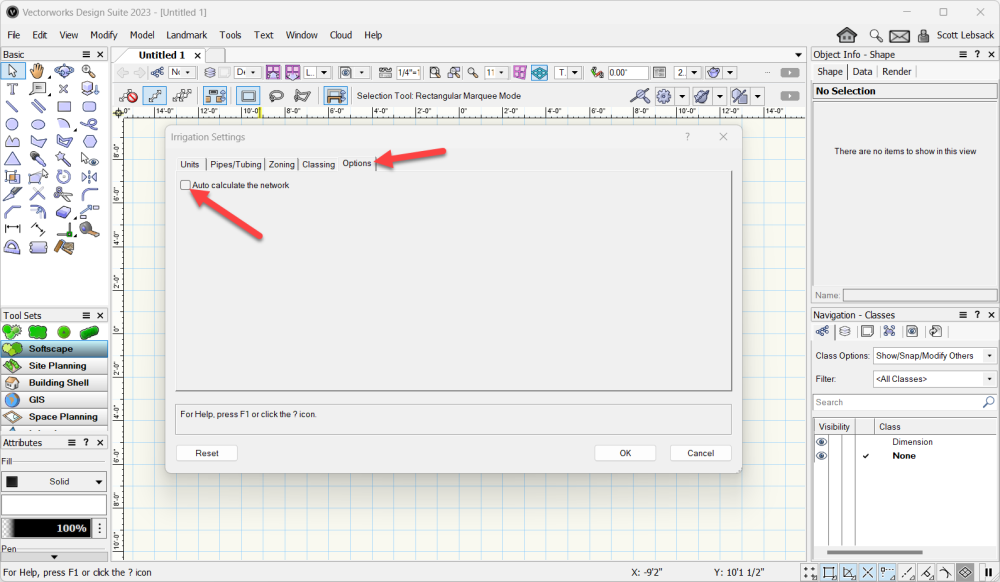
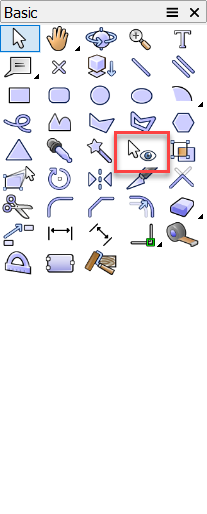
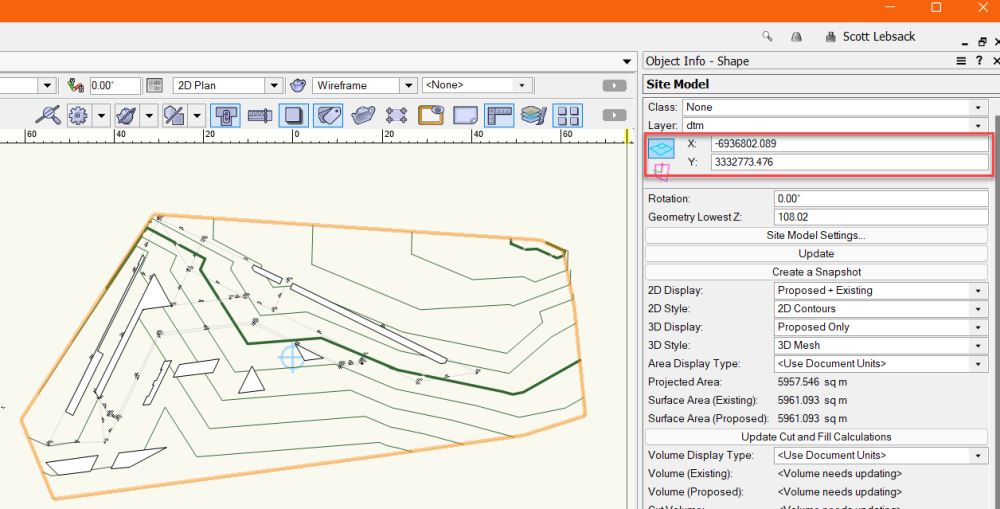
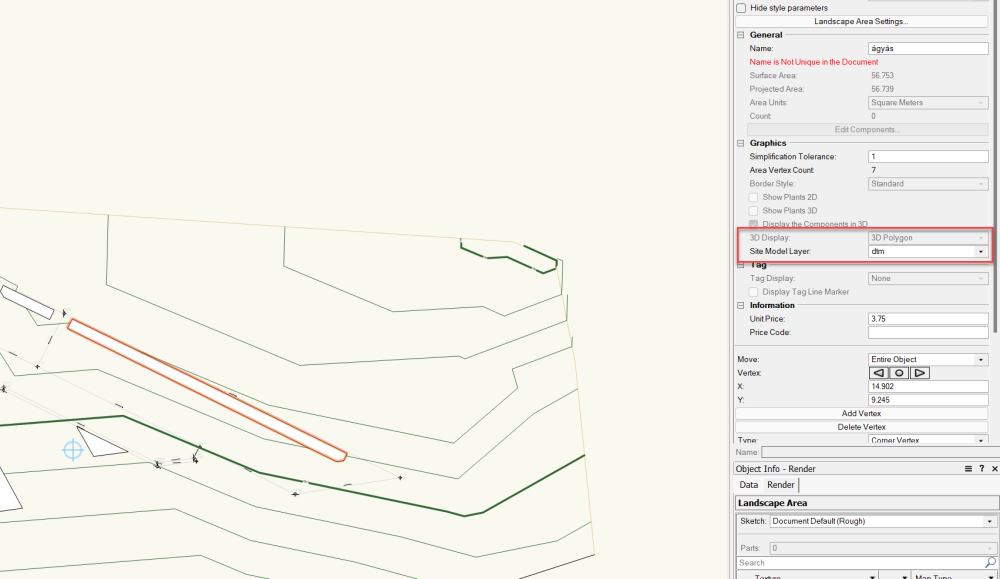
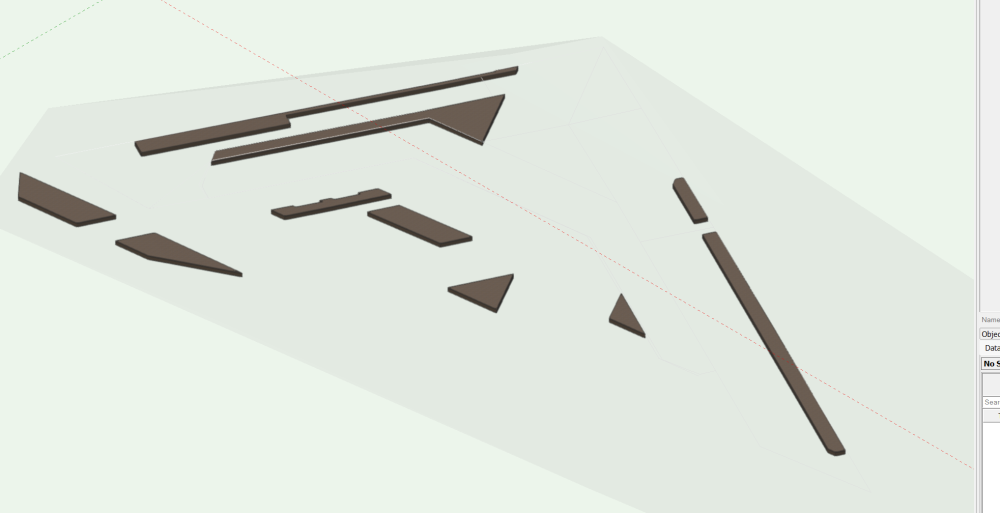
Expand the use of the 3D Dragger
in Wishlist - Feature and Content Requests
Posted
2024.0.4.1 is available, in case that addresses the issues you were having.